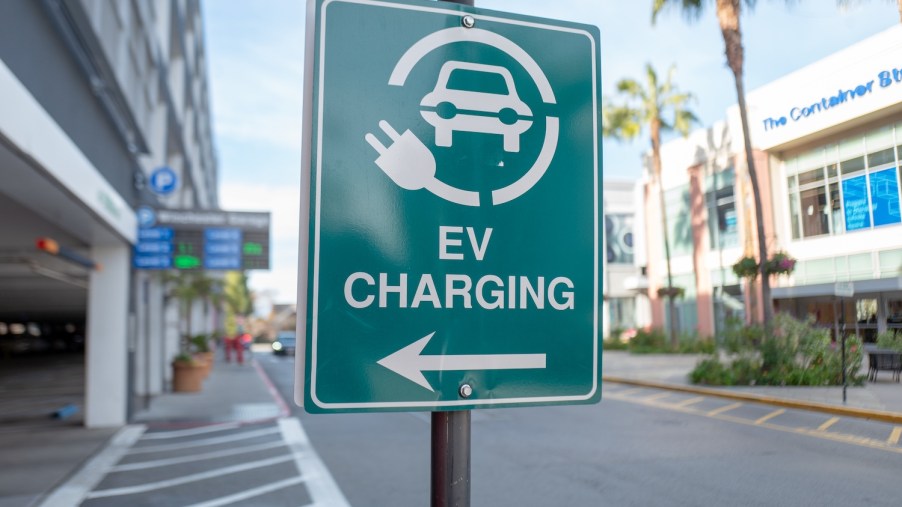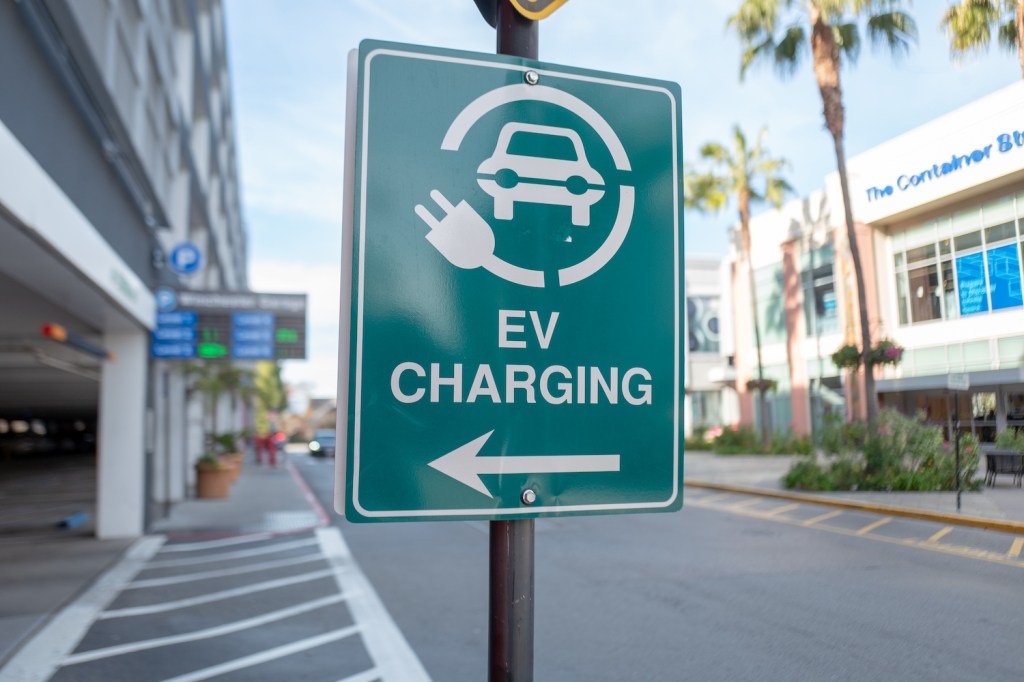
How Long Does It Take to Charge an EV?
There’s no denying that electric vehicles (EVs) are becoming increasingly popular. And why not? Who wants to stop at the gas station on a regular basis? It’s important to remember, though, that EVs do need to be charged. After all, EVs do have to run on something. But how long does it take to actually charge an EV?

What determines how long it takes to charge an EV?
According to Car and Driver asking how long it takes to charge an EV is like asking, “how long does it take to cross the country?” That’s why if you plan on buying and using an EV as your daily driver, it’s important to understand what determines how long it takes to actually charge an EV.
J.D. Power explains that EVs come with different types of charging systems which are based on charging power that’s been measured in kilowatts (kW). While AC charging at Level 1 (120V) or Level 2 (240V) ranges from 1.8 to 10 kW, Level 3 ranges from 50 to 350kW. The most common are Level 1 chargers, which basically describes a standard 120-volt three-prong plug. According to J.D. Power, if you rely on a Level 1 charger, you’ll probably have to charge your EV on a nightly basis or throughout the day.
Level 2 charging, on the other hand, utilizes a similar plug to that of a clothes dryer or refrigerator. J.D. Power reports that Level 2 charging is faster than Level 1 charging and provides 25-30 miles of driving range per hour too. For example, an 8-hour overnight charge will provide you with 200 miles or more of driving range.
Level 3 charging, also known as DC Fast Charging, is typically available in public and commercial spaces like rest stops, shopping centers, and office parks. Use Level 3 charging and J.D. Power says that you can expect 125 miles of added range in about thirty minutes, or 250 miles in about an hour.
Charging your EV when you’re away from home
But what happens if and when your EV runs out of juice and needs to be recharged before you make it home? Well, then you’re going to have to find a public charging station. Fortunately, according to the U.S. Department of Energy, there are nearly 30,000 public charging stations throughout the country. These stations can be pretty easy to find too. Simply check out the linked map, or use an app like PlugShare to find an EV charging station near you. Keep in mind, however, that charging your vehicle at one of these stations may cost you.
How to extend the life of your EV’s battery
You might be wondering, is it possible to extend the life of an EV’s battery? Well, according to Motortrend, it is. Motortrend reports that doing things like minimizing an EV’s exposure to high and low temperatures can help to extend the life of its battery. Motortrend also recommends resisting the urge to plug in all night every night because it could have a negative impact on the battery too.
Another no-no? Making a habit out of fast charging. According to Motortrend, while fast charging is convenient and can be helpful if done infrequently, it can have a negative impact on your regular charging efforts.
Owning an EV is a lifestyle choice
In the end, though, owning an EV is a lifestyle choice. Determining how long an EV takes to charge is going to depend largely on what type of EV you purchase, and how you choose to charge it too.



